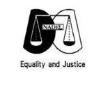Venezuelan Elections
The president of the National Association of Democratic Lawyers (NADEL) Mr. Mvuzo Notyesi was present in the Bolivarian Republic of Venezuela, as an independent election observer during May 20th elections.
NADEL is pleased that Mr. Notyesi was present to independently observe the elections in that country. NADEL was in addition to 250 other international observer missions from other countries. The South African Communist Party (SACP) was also present in Venezuela to observe the elections. There have since been many conflicting reports on the May 20th elections in Venezuela.
Mr. Notyesi reported to the NADEL, National Executive Committee that elections carried out in Venezuela were free and fair. His conclusions were based on his observations:
a) Fingerprint Electronic Voting Machines:
Venezuela uses superior technological methods to ensure that the voting process is fair. The use of electronic voting machines eliminates almost all possibilities of electoral fraud.
The process consisted of using a printed voters roll to check and verify the identity of each voter. Fingerprints were identified and checked electronically. Party observers from all political parties observed each stage of the voting process. Once in the ballot box a voter would log their vote for the candidate of their choice electronically. The system would then print that ballot paper, which would then be placed by the voter in the ballot box.
The system allows for votes to be tallied early by the electronic system and then verified against printed ballot sheets in the ballot box.
b) Polling stations were not only placed in schools, halls and other such designated centres. Polling stations were placed near shops, churches and in every place where people converge.
c) There were more than two hundred and fifty (250) observers present invited by the government and by the IEC.
Mr. Notyesi reported that the elections were incident free and were broadly free and fair.
However of greater concern to NADEL is his report on the grave humanitarian crisis in Venezuela. The crisis is a direct result of economic sanctions placed on Venezuela by the United States of America, Canada and the European Union and allied nations.
Despite the United Nations Human Rights Council (UNHRC) adopting the resolution proposed by Non-Aligned countries under (NAM), condemning the economic sanctions against Venezuela the imperialist countries continue with such unilateral coercive measures.
Economic sanctions imposed on Venezuela disproportionately affects the poorest people. It is a threat to the realisation of human rights. Imposing economic sanctions on the sovereign nation of Venezuela is the use of unilateral coercive measures that is against international law and the UNHRC resolution that states that nations must resolve their differences through dialogue and peaceful measures.
The imposition of such economic sanctions is also in contravention of General Assembly Resolution 70/1 of 25 September 2015: “Transforming our World: The 2030 Agenda for Sustainable Development in which all states are urged to not apply unilateral economic, financial or trade measures that impede the full achievement of economic and social development particularly in developing countries.”
The continued US financial support for insurgent groups within Venezuela and the financial blockade placed on the state; causes us to support the view that it is but a “neo-colonial war [method] to seize the natural resources of developing countries.”
It threatens the Venezuelan people’s right to life, health and medical care, freedom from hunger, adequate standard of living, education and other vital human rights. At this point in history human rights organisations cannot tolerate the suffering of people as a result of economic wars of conquest by imperial powers.
We call on the South African government to demand that imperialist forces withdraw the economic sanctions on Venezuela to alleviate the suffering of its people. Imperial powers must further allow sovereign states to determine their own political and economic systems which will further democratise the international space. We can no longer ignore the pluri-polar and multicentral systems of democratisation that are emerging as a result of new emerging regional blocs of power. Developing nations must be protected and be allowed to develop without imperial domination.
The support of insurgent groups in Venezuela is viewed as an attempt for regime change perpetuated by the American government and its allies. It is tantamount to terrorism and the undermining of an internationally recognised sovereign state.
Our actions will include protesting and other peaceful means until the Bolivarian Republic of Venezuela is respected as an independent sovereign state and the people are allowed to their political and economic freedom.
Statement issued on behalf of NADEL by Ugeshnee Naicker, (Deputy Secretary), 1 June 2018

